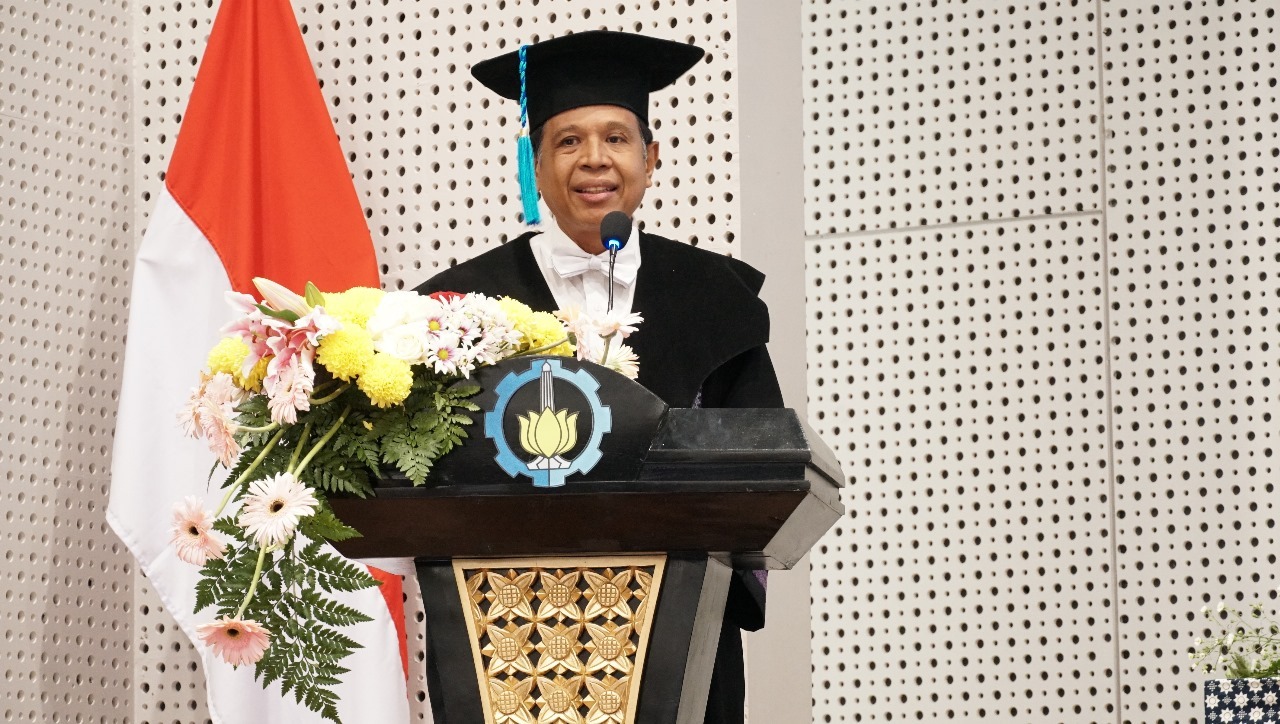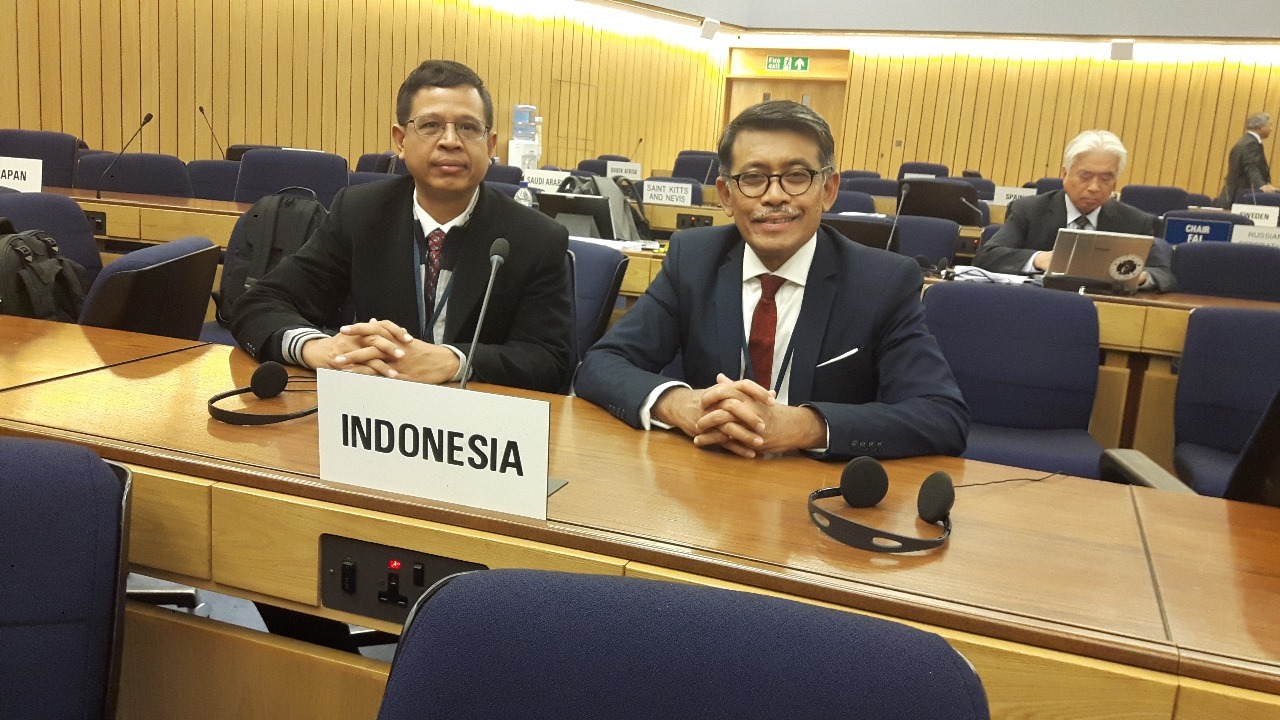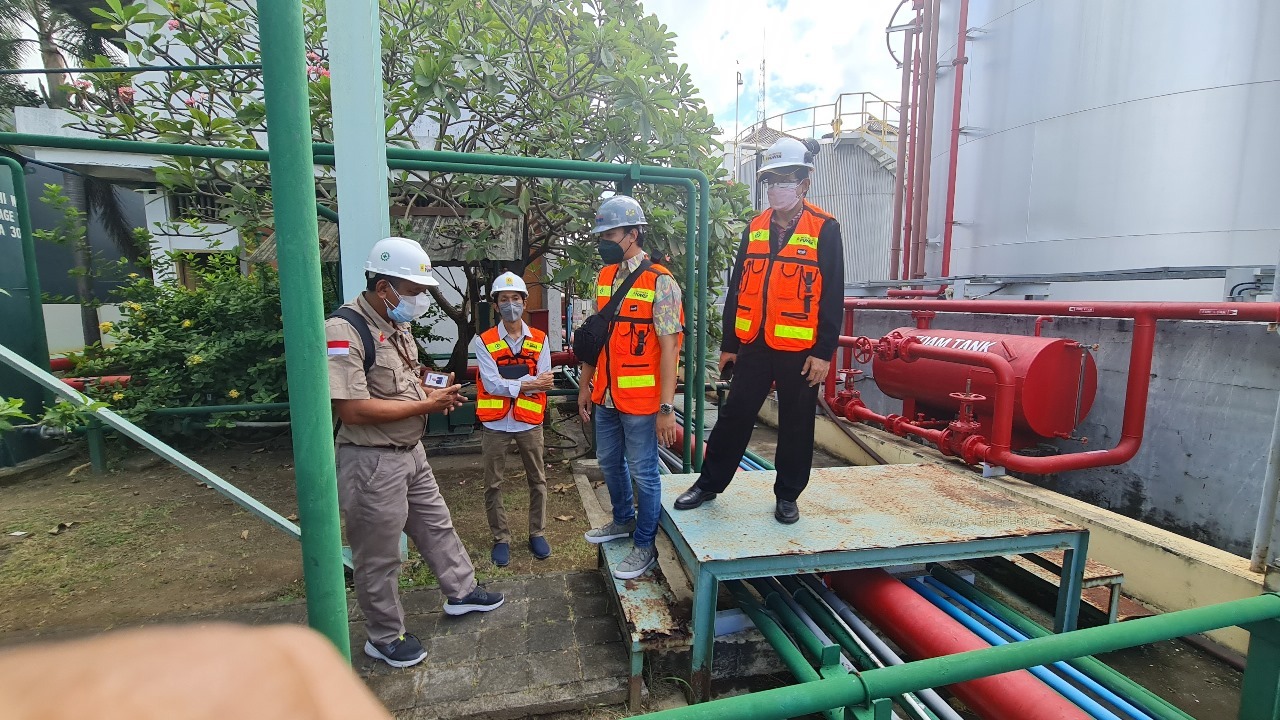ITS Professor Studies Ship Efficiency for a Sustainable Environment

Prof. Dr. I Made Ariana ST MT when presenting his scientific oration at the Open Session of the ITS Inauguration of Professors’ Council
ITS Campus, ITS News —As one of the main contributors to environmental pollution, gas emissions have become a major focus in efforts to preserve the marine environment. Based on this, the 202nd Professor of Institut Teknologi Sepuluh Nopember (ITS) Prof Dr I Made Ariana ST MT studied reducing the negative impact of ship exhaust emissions in sea waters in order to strengthen the energy efficiency of national ships towards net zero emissions.
The man who is often called Made carries out research that focuses on measuring ship energy efficiency using the concept of Energy Efficiency Operational Indicators and Indicators (EEOI). “It is important to evaluate the energy efficiency of ships from the design stage, so that later it can have an impact on environmental and financial sustainability,” explained Made further.
Therefore, this lecturer from the ITS Department of Shipping Systems Engineering developed an innovative Traffic Separation Screen (TSS) system based on Automatic Identification System (AIS) data, to monitor ship energy efficiency which is supported by using ship static and dynamic data to calculate energy efficiency indicators. such as the Carbon Intensity Indicator (CII). In this way, shipping companies can monitor and improve the energy efficiency of their ships more effectively.

Prof Dr I Made Ariana ST MT (kiri) saat hadir sebagai delegasi RI pada Sidang IMO di London pada proses pengusulan Traffic Separation Screen (TSS) Selat Lombok dan Selat Sunda
Kepala Laboratorium Permesinan Kapal ITS ini menjelaskan bahwa sistem tersebut memiliki fitur utama dalam pemantauan dan pencatatan penggunaan energi secara real time setiap bulan. Fitur ini mempermudah operator kapal dalam berkontribusi untuk mengurangi emisi gas rumah kaca agar dapat mengambil langkah perbaikan yang sesuai. “Dengan mengurangi jumlah emisi secara signifikan, maka keputusan dalam pemberhentian operasi kapal dapat lebih komprehensif,” ungkapnya.
Tak hanya itu, Made juga mengembangkan metode Engine Power Limitation (EPL) sebagai cara untuk membatasi konsumsi bahan bakar kapal dengan biaya yang lebih murah. “Meskipun mengurangi kecepatan operasional, metode ini memberikan manfaat berupa sertifikat efisiensi energi dari International Maritime Organization (IMO) dan memungkinkan kapal beroperasi di area dengan regulasi yang ketat,” terangnya lebih lanjut.

Prof Dr I Made Ariana ST MT (kanan) saat di pembangkit listrik Pesanggaran Bali dalam rangka penyiapan infrastruktur untuk bahan bakar ramah lingkungan
This professor from Bali also collaborates with various stakeholders, including the government, shipping companies and research institutions. With support from various parties, it is hoped that this innovation can help Indonesia achieve the net zero emission program target and increase the competitiveness of Indonesian ships globally. “This is a real example of how maritime technology can be used to overcome environmental challenges,” said Made.
During its development, Made realized that there were still several challenges that needed to be overcome. One of them is the limited range of the system which requires an increase in the number of Satellite Based Receivers (RBS) to expand the coverage area. To overcome this, Made has also tried to grant the maritime monitoring and study system he designed to more than 12 strategic partners, such as universities and government institutions.
Through this innovation, Made hopes that shipping companies in Indonesia will adopt more efficient fuels, setting an example for other ships for environmentally friendly practices. In this way, Indonesia can move towards reducing emissions according to IMO standards. “It is hoped that adoption of this solution will continue to advance a cleaner and more sustainable shipping industry,” he concluded optimistically. (ITS Public Relations)
Reporter: Nabila Rahadatul Aisy Koestriyaningrum
Related News
-
Anticipating Lost Pet Dogs, ITS Students Invent a Tracking Bag
ITS Campus, ITS News —Losing a pet is a sad thing for its owners. To anticipate this, a team
March 26, 2024 23:03 -
ITS Students Integrate Smart City Service Features Through Visionaries
ITS Campus, ITS News — Institut Teknologi Sepuluh Nopember (ITS) continues to prove itself as a home for talented
March 26, 2024 23:03 -
ITS Students Innovate Eco-Quake Building Concept
ITS Campus, ITS News — Along with the development of technology, the construction sector has also experienced rapid growth
March 26, 2024 23:03 -
Great, ITS Successfully Becomes Overall Champion of the 2024 Indonesian Ship Contest
ITS Campus, ITS News — Proving itself as a home for champions, Institut Teknologi Sepuluh Nopember (ITS) managed to
March 26, 2024 23:03
